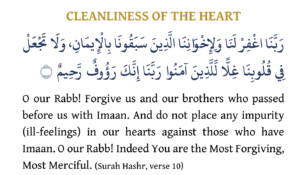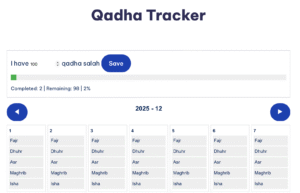Continuing our essentials of deen series, let us learn what is Qisas قِصَاص in Islam.
What is Qisas in Islam -the Meaning of Qisas
In the terminology of Shari’ah (divine law), qisas implies: ‘taking the life of the murderer”. If anyone has killed someone unjustly, then qisas is to kill him against the murdered.
The word is derived from(قص) and (قصص)(qis and qisas), the literal meaning of which is to follow someone-To track, to trace. The guardian of the murdered person follows the murderer to kill him in retaliation for the murdered. This is why to take the life of the murderer is called qisas.
This is an independent website by a Female scholar.If you benefit from our articles, Help our Projects by buying our Worksheets (Link1) or (Link2) or removing ads. Bookmark our website so that you can visit it daily for(Digital Tasbih) or (Salah Tracker).
(قصاصات)(qisasat) means ‘equality.’ It is in the sense that when the murderer is killed in revenge for the murdered then the guardian gets even with the murderer, or the murdered and the murderer are quits with one another.
Qisas Punishment
In qisas the murderer is treated in the same way as the murderer had treated the murdered.
حَدَّثَنَا مُحَمَّدُ بْنُ عَبْدِ اللَّهِ الأَنْصَارِيُّ، حَدَّثَنَا حُمَيْدٌ، أَنَّ أَنَسًا، حَدَّثَهُمْ عَنِ النَّبِيِّ صلى الله عليه وسلم قَالَ “ كِتَابُ اللَّهِ الْقِصَاصُ ”.
Narrated Anas:
The Prophet (ﷺ) said, “The prescribed Law of Allah is the equality in punishment (i.e. Al-Qisas).” (In cases of murders, etc.)(Sahih bukhari 4499)
Qisas in Quran
You who believe, fair retribution is prescribed for you in cases of murder: the free man for the free man, the slave for the slave, the female for the female. But if the culprit is pardoned by his aggrieved brother, this shall be adhered to fairly, and the culprit shall pay what is due in a good way. This is an alleviation from your Lord and an act of mercy. If anyone then exceeds these limits, grievous suffering awaits him.(2:178)
We ordained for them in the Torah, “A life for a life, an eye for an eye, a nose for a nose, an ear for an ear, a tooth for a tooth—and for wounds equal retaliation.” But whoever waives it charitably, it will be atonement for them. And those who do not judge by what Allah has revealed are ˹truly˺ the wrongdoers.(5:45)
Shariah law by Islamic government if some one kills a man/Qisas for Murder-
The Shari’a law for murder :
- Imam Shafi and Imam Ahmad:If anyone kills a man hereafter his people will have a choice, to kill him if they wish, or to accept blood wit if they wish
- Imam Abu Hanifah and Imam Maalik say that the heirs of the dead person will have a right to claim blood wit from the murderer, only if he is willing to pay it. But, should he refuse to pay it, then they have no choice other than killing him. It is said that Imam Shafi’ rahimullah also holds this opinion.
During the pre-Islamic days, the tribe Hudhayl had killed a man of the tribe khuza’ah. In retaliation, they killed a man of the Hudhayl. To prevent further trouble between the two tribes, the Prophet Sallalahu alaihe wa sallam paid the blood wit for this murdered man as he said (and is quoted in the hadith).
وَعَن أبي شُرَيحٍ الكعبيِّ عَنْ رَسُولِ اللَّهِ صَلَّى اللَّهُ عَلَيْهِ وَسَلَّمَ قَالَ: ” ثُمَّ أَنْتُمْ يَا خُزَاعَةُ قَدْ قَتَلْتُمْ هَذَا الْقَتِيلَ مِنْ هُذَيْلٍ وَأَنَا وَاللَّهِ عَاقِلُهُ مَنْ قَتَلَ بَعْدَهُ قَتِيلًا فَأَهْلُهُ بَيْنَ خِيرَتَيْنِ: عَن أَحبُّوا قتلوا وَإِن أَحبُّوا أخذا العقلَ “. رَوَاهُ الترمذيُّ وَالشَّافِعِيّ. وَفِي شرح السنَّة بإِسنادِه وَصَرَّحَ: بِأَنَّهُ لَيْسَ فِي الصَّحِيحَيْنِ عَنْ أَبِي شُرَيْح وَقَالَ:
وَأَخْرَجَاهُ مِنْ رِوَايَةِ أَبِي هُرَيْرَةَ يَعْنِي بِمَعْنَاهُ
Abu Shuraih al-Ka’bi reported God’s Messenger as saying, “Then you, Khuza’a, have killed this man of Hudhail, but I swear by God that I will pay his blood wit. If anyone kills a man hereafter his people will have a choice, to kill him if they wish, or to accept blood wit if they wish.” Tirmidhi and Shafi‘i transmitted it. It occurs in Sharh as-sunna with his isnad, but it states clearly that it does not occur in the two Sahihs on the authority of Abu Shuraih, saying that they rendered it from Abu Huraira’s version, meaning something similar.*
All Muslims are equal in Qisas- whether rich or Poor
In seizing retaliation or paying blood money, all the Muslims are equal:the noble and the humble, the young and the old, the learned and the ignorant, the rich and the poor, and the male or female. There is no distinction in applying qisas and diyah.
Death and Accidental death in Islam
Ta’us, on the authority of Ibn Abbas, reported God’s Messenger as saying, “If anyone is killed in error when people are throwing stones, or by beating with whips, or striking with a stick, it is accidental and the compensation for accidental death is due.* But if anyone kills someone deliberately retaliation is due, and if anyone tries to prevent it God’s curse and anger will rest on him, and neither supererogatory nor obligatory acts will be accepted from him.” Abu Dawud and Nasai transmitted it.
So If anyone is surrounded by two warring groups or is a passerby, for instance, and happens to be killed by a stone thrown by the disputants then no retaliation is due but diyah as for accident will be payable. The jurists call it (shibh amd) or a quasi- deliberate intent,
- Imam Abu Hanifah ra defines it thus; ‘The killing that occurs with something that is not sharp and such as normally death does not result from it.’
- The two disciples(of his) and imam Shafi’ however, define shibh amd as a killing that results with intent with such a thing which does not normally cause death. If death occurs with such a thing that is used to kill generally then that is(intentional killing- qatl amd).
lmam Abu Hanifah says of the things mentioned in the hadith, (stone, stick) that they are mentioned in their literal sense and maybe light weight or heavy. The two disciples and imam Shafi ra maintain that these things mentioned in the hadith stand for lightweight objects (not heavy). In other words, if anyone is killed with something that is heavy, then according too:
(i) Imam Abu Hanifah qisas (or retaliation) is not wajib (obligatory), but according to
(ii) The two disciples and Imam Shafi’i the forgoing explanation is valid.
If anyone obstructs· the heirs of the slain person from demanding retaliation then he is warned seriously that he calls for Allah’s anger.
Accidental murder
ACCIDENTAL MURDER: It is of two kinds.
1) Accidental murder related to intention or wrong action
(a) Accident is related to intention. For example, a hunter aimed at a game but that turned out to be a man.
(b) Accident is related to a (wrong) action. For instance, a man aims at a target, but misses and hits a man.
2) Accidental murder unknowingly
For example, a man might fall in his sleep over another man who dies because of the crash.
Expiation is binding in both cases: accidental murder and accidental murder unknowingly. Also, diyah is wajib(obligatory) on the tribe of the (accidental) murderer in both cases. Moreover, in these cases(because of negligence) sin also is committed.
والله أعلمُ بالـصـواب
What is the difference between Qisas and Diyya?
In Islamic law, Qisas and Diyya are two important concepts related to criminal justice. While both involve compensation for a wrongdoing, they differ in their application and purpose. This article will explore the differences between Qisas and Diyya, and provide examples and quotations from classical texts to illustrate these concepts.
Qisas is the Islamic principle of retribution for a crime committed. It is derived from the Quranic verse “And there is for you in legal retribution (Qisas) life, O you [people] of understanding, that you may become righteous” (2:179). Qisas refers to the punishment of equal retaliation for a crime committed, which is usually a physical injury. For example, if someone causes physical harm to another person, the victim has the right to demand that the perpetrator receive the same harm. This principle is based on the concept of lex talionis, or “an eye for an eye”.
On the other hand, Diyya is a form of financial compensation paid to the victim or the victim’s family in cases of accidental injury or death. Diyya is derived from the Quranic verse “And whoever kills a believer intentionally, his recompense is Hell to abide therein, and the wrath and the curse of Allah are upon him, and a great punishment is prepared for him. And whoever kills a believer unintentionally, then his penalty is that he should free a believing slave and pay Diyya to the victim’s family, unless they remit it as charity” (4:93-94). Diyya is paid to compensate the victim or the victim’s family for the harm caused, and to provide financial support and assistance.
There are several differences between Qisas and Diyya. Firstly, Qisas is applicable only in cases of intentional harm or injury, while Diyya is applicable in cases of accidental harm or injury. Secondly, Qisas involves equal retaliation, while Diyya involves financial compensation. Finally, Qisas is a form of punishment for the perpetrator, while Diyya is a form of compensation for the victim or the victim’s family.
Classical texts also provide guidance and regulations regarding Qisas and Diyya. For example, the Hanafi school of Islamic law states that the Diyya for a man is twice that of a woman, since men are responsible for providing financial support and assistance to their families. The Maliki school of Islamic law allows the victim or the victim’s family to choose between Qisas and Diyya, depending on their preference.
In conclusion, Qisas and Diyya are two important concepts in Islamic law that involve compensation and justice for
What is Diyah?
In sha Allah in next post of this series we will learn about Diyah.
Discover more from Islam Hashtag
Subscribe to get the latest posts sent to your email.





